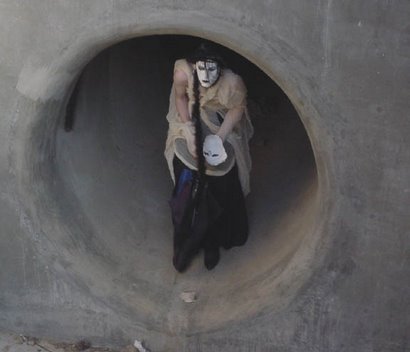In The Culture Industry, Theodor Adorno posits the idea that the accoutrements of popular culture – including entertainments such as film and certain kinds of literature – in reality lull the masses into a state of passivity, making them oblivious to their own labor-mandated circumstances and difficult economic situations. This mass-produced culture, Adorno and Horkheimer argue, poses a certain danger to the ‘high’ cultural arts.I agree with most of j's comments regarding Eagleton, Rorty, and aesthetics, although I must admit myself to be more in the Eagleton camp, and here's why. It isn't that Eagleton's a spurned lover. It's that Rorty, in his "here, let me pass you a mint julep, because i'm an intellectual - liberal ironist - and we, well we are of a special breed, aren't we? let's laugh gently at the hijinks of the unintellectual kiddies" sort of way manages to really, really irk in the craw of people who don't at all feel that way or like that sort of attitude.
In this paper, I intend to tackle the question: what happens when mass-produced culture becomes ‘high’ culture? Or, more specifically, what happens when the culture industry spawns what Takayuki Tatsumi calls “the perverse aesthetics of bad taste?” I believe that, contrary to what Adorno and Horkheimer might consider the death of ‘high’ culture, the reintroduction of ‘low culture,’ or perhaps the conscious reconfiguration of it as the avant-garde, might in fact collapse the aesthetic standard set by the culture industry or at least change the paradigm in which the standard is created.
To this end, I intend to rely on several Eastern theorists and scholars, including Tatsumi and Susan J. Napier,to examine the so-called rise of the avant-pop movement—full-blown in many Eastern cultures, particularly Japan, and rapidly growing in America—and what the rise of such a movement might imply for the concept of the ‘high’ culture, low culture, and the economic circumstances from which both arise.
I have a prof who refers to Rorty as "Papa Rorty," because at the end of the day there's a lot of Rorty that's Freudian in nature. "Ignore logic," Rorty says, "because it too is just a vocabulary, and we're poeticizing the Enlightenment. So never you mind if the logic seems circular, because that doesn't matter - we'll all end up in circles anyway. At the end of things, our subconscious is guiding a lot of what goes on."
...in treating aesthetics and culture in this post I was also going to deal with my novel-writing, as genre fiction is often seen as a form of "low culture" and I have a plethora of issues with that; however, I think I'll leave that post for another day.
In the meantime, for your edification, click here for your fun Youtube video of the day: George Washington.
He's got a wig for a wig and a brain for his heart.
He'll kick you apart.
- b -


No comments:
Post a Comment